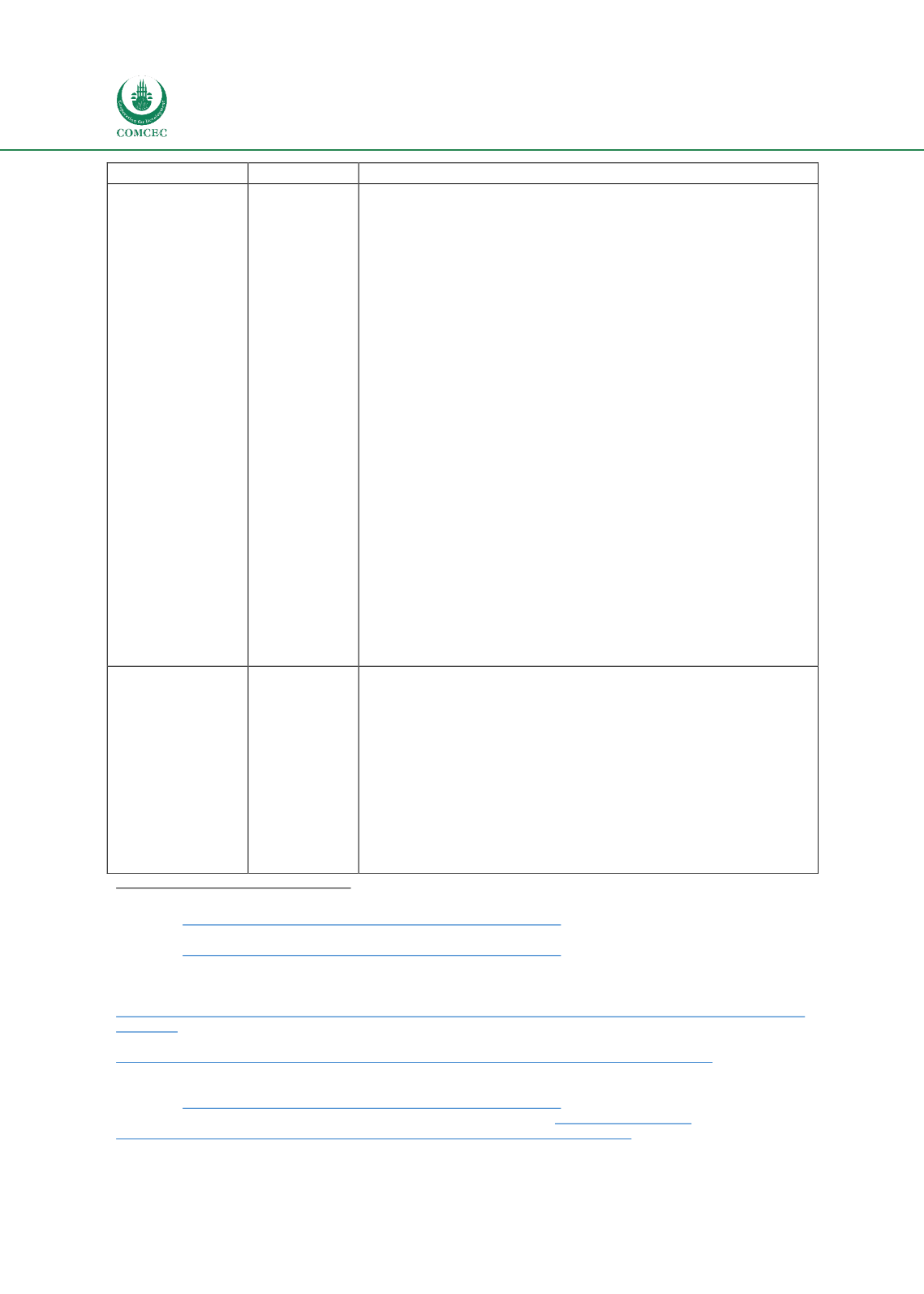

Improving Agricultural Market Performance
:
Creation and Development of Market Institutions
140
Classification
Institution
Description
distributed as well as the targeted households. The Indonesian Bureau
of Statistics (BPS) supports the Government through surveys on
poverty and income statistics. This program comes at a cost, however,
as more pressure is put on financial resources in order to finance the
RASTRA program.
414
At its inception, BULOG enjoyed the exclusive monopoly on importing
rice, soybeans, sugar, wheat, wheat flour, and garlic.
415
However,
BULOG does not enjoy monopoly power anymore but should ensure a
buffer stock of rice is maintained in times of buffer stock shortages.
416
This buffer stock should equal between 5% and 10% of Indonesia’s
monthly rice production. Rice imported to restore this buffer stock is
subject to customs duties, just as rice imports of private companies.
The difference however, is that these private companies need to be
licensed through the import licensing system. BULOG does not engage
in export activities. According to the WTO, the Government of
Indonesia is considering to expand BULOG’s import and buffer
operations into other commodities (e.g. sugar and soybeans).
417
Given the Government of Indonesia’s recent push for more self-
sufficient agricultural policies, BULOG has been instructed a more
pronounced role with respect to controlling food imports and
domestic prices.
418
However, BULOG has been ordered to import 1.5
million tonnes of rice from Thailand and Vietnam in response to
surging rice prices due to El Niño’s devastating impact on the rice
yield in 2015.
419
This is similar to the circumstances in 1997 and
1998, when Indonesia imported an average of three million tonnes of
rice annually due to El Niño.
420
State-Owned
Economic
Enterprise
PT
Perkebunan
Nusantara III
PT Perkebunan Nusantara III (PTPN III) has been established in
1996
421
and is a state-owned economic enterprise whose shares are
100% owned by the Indonesian state.
422
Though palm and rubber
plantations have been operating in Indonesia since 1911, PTPN II has
been established as a merger of three companies (PT Perkebunan or
PTP), which, in turn, had been established as PPN in the 1950s. PTPN
II has been established as holding company in 2014, as it owns 90% of
the shares of other PTPN companies (PTPN I to PTPN XIV), while the
Government owns the remaining 10% of the shares of the other PTPN
companies. The PTPN holding company now owns 1.18 million
hectares of land, of which 943,083 hectares of plantation. It employs
more than 133,000 people, a large share of whom are smallholders.
414
FAO (2003), “WTO Agreement on Agriculture: The Implementation Experience - Developing Country Case Studies,”
available a
t http://www.fao.org/docrep/005/y4632e/y4632e00.htm#Contents [Accessed June 2017].
415
FAO (2003), “WTO Agreement on Agriculture: The Implementation Experience - Developing Country Case Studies,”
available a
t http://www.fao.org/docrep/005/y4632e/y4632e00.htm#Contents [Accessed June 2017].
416
WTO (2013),
Indonesia Trade Policy Review Report by the Secretariat
, Geneva: World Trade Organization.
417
Ibid
418
Reuters (2015), Indonesia's Bulog Tells Reuters That El Nino May Lead To Rice Imports In Early 2016, available at
http://www.reutersbest.com/articles/view/4570/indonesias-bulog-tells-reuters-that-el-nino-may-lead-to-rice-imports-in- early-2016 [Accessed June 2017].
419
The Jakarta Post (2015), RI to import 1.5 million tons rice from Thailand, Vietnam, available at
http://www.thejakartapost.com/news/2015/09/25/ri-import-15-million-tons-rice-thailand-vietnam.html [Accessed June
2017].
420
FAO (2003), “WTO Agreement on Agriculture: The Implementation Experience - Developing Country Case Studies,”
available a
t http://www.fao.org/docrep/005/y4632e/y4632e00.htm#Contents [Accessed June 2017].
421
Indonesia Investments (2017), Perkebunan Nusantara III (SOE), available a
t https://www.indonesia- investments.com/business/indonesian-companies/perkebunan-nusantara-iii-soe/item1204 [Accessed June 2017].
422
Interview conducted with PT Perkebunan Nusantara III in Jakarta, July 12, 2017


















